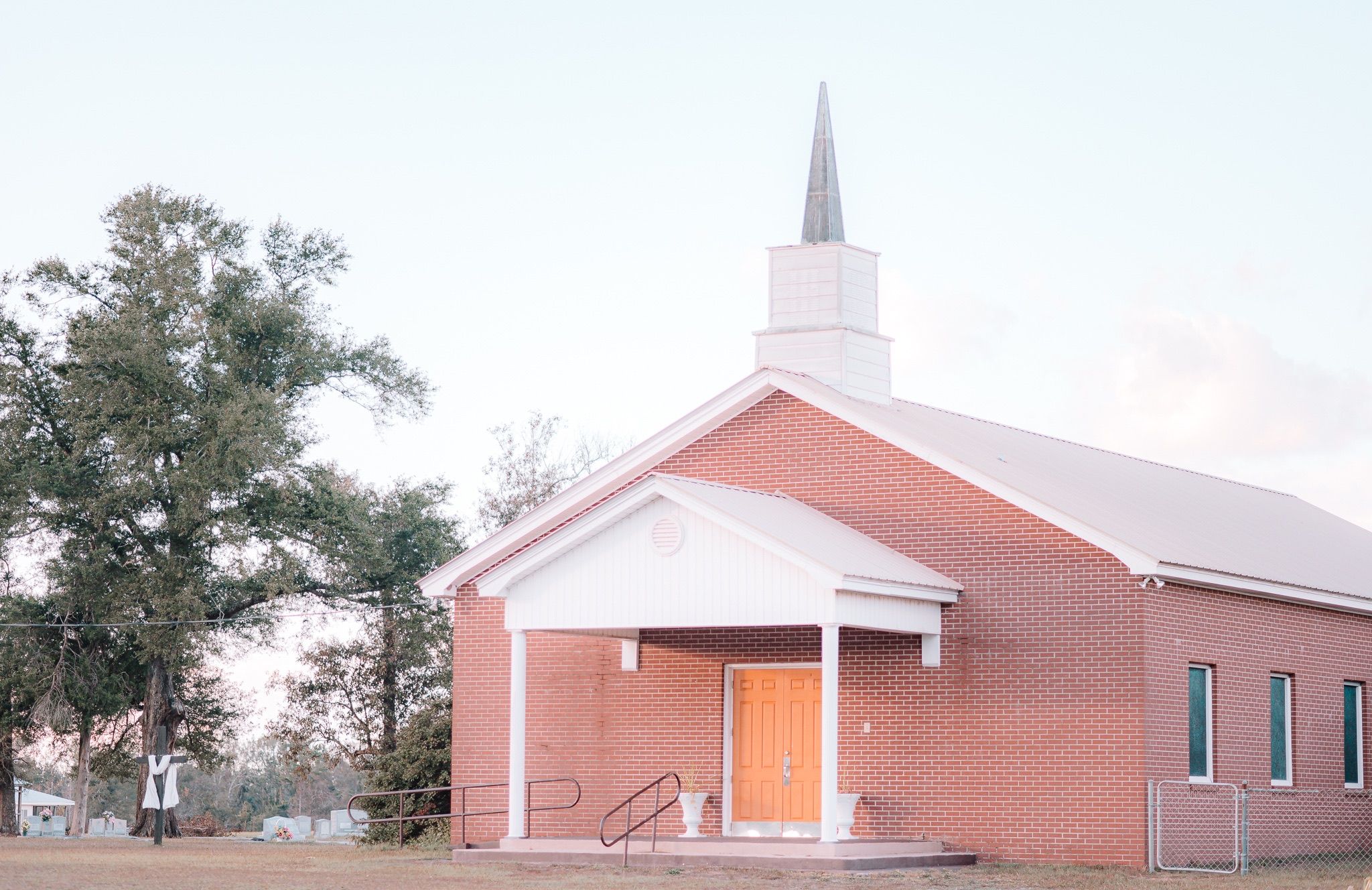You’ve Got a Friend in Me
You’ve Got a Friend in Me
If you’re reading this, chances are you’re a pastor. (I know… I shocked you with my keen insight right off the bat.) You probably pastor a church in the midst of a replant– or you’ve revitalized one. You most likely have a lot of pieces of your ministry figured out. You know what works, and what doesn’t. (At the very least, you know between Jimbo and Bob you can find some answers here.) But I think you might be missing a crucial piece to your ministry… and you might not even know it.
The missing piece? Friendship.
In an informal survey (VERY informal, as in I had my husband text some questions to several pastors he knows), 80% of the pastors I surveyed said they sometimes find it difficult to make friends, both inside and outside of their own church. Most said that they struggled with maintaining friendships. Some even said they didn’t have a significant friendship beyond their spouse. But are friendships with others important? A resounding YES. So what is the disconnect between knowing we need those relationships and actually having them?
Brian Croft’s new book, Pastoral Friendship: The Forgotten Piece to a Persevering Ministry, addresses this problem through the lens of the biblical mandate for friendships and the emotional necessity of them. In their latest podcast, Jimbo and Bob (or, Jimbob, if you like) spoke with Brian about why pastoral friendship is so important.
Friendship, as defined in the book, is an “intimate relationship of love, trust, and loyalty.” Now, I already know that some readers may have an issue with one certain word– “intimate.” In our society, the word intimate has been skewed to denote a sexual relationship. But that isn’t the true definition of what it means to be intimate with another person. Intimacy simply means to be “familiar, close, and known” by another person. This is no mere acquaintance, someone you see occasionally or know basic facts about. This is a person who knows the REAL you. This is someone who knows more than your spouse’s name– they know what arguments you have with them. They aren’t just someone who would call you in the middle of the night with a crisis, they are someone YOU would call in the middle of the night as your “one phone call” from jail. (While that may sound dramatic, the truth is– some pastors are dealing with secret sin that could result in that phone call.) Intimacy in friendship is the difference between knowing your friend’s birthday and knowing their testimony.
For many people, the idea of “friends” has shifted in the past several years, thanks to the advent of social media. Facebook redefined “friend,” and the word has now become synonymous with “follower” on other platforms. Counting friends this way has both cheapened the value of friendship and has altered our perception of how many true friendships we really have. As Croft writes, “By and large, our culture considers friendship a third or fourth tier relationship,” following behind familial and romantic relationships. R.I.M. Dunbar, PhD, a professor in the Department of Experimental Psychology at the University of Oxford says that the idea that we have hundreds of friends through our social media channels is not physically possible, based on the ability of our brain to truly spend time on others. “We are fooling ourselves,” he explains. “You can certainly sign up as many people as you like, but that doesn’t make them friends. All we are doing is signing up people that we would normally think of as acquaintances in the offline world.”
And yet, in a time when society seems to have more friends than ever, pastors report feeling isolated and alone much of the time.

WHY CAN’T WE BE FRIENDS?
Croft describes several internal obstacles pastors might face that make them hesitant to make deep, connective friendships.
- Pride: Pastors may feel they have no need for outside friendship. They may believe that they don’t need the wisdom and support a true friendship can give.
- Fear of Man: Many pastors have been hurt and betrayed by friendships within ministry. Perhaps a church member felt let down when they realized he wasn’t perfect, or used his vulnerable moments as fodder for gossip.
- Laziness: Friendships take time. Many pastors just don’t want to spend the extra energy on something that isn’t ministry related (later in this post we will see why friendship IS ministry related!).
- Weariness: Pastors are often simply too exhausted to focus any time or attention on anyone outside of their family and their flock.
- Selfishness: Sometimes pastors don’t want to give any more of themselves than they already do.
- Lack of Self-Awareness: Sometimes pastors don’t seem “friendly.” They have isolated themselves to the point of not realizing how they may be viewed by others.
Pastors also face a unique challenge to friendship based on their role within the church. As the shepherd, many pastors don’t feel comfortable being seen as weak by their congregation. Friendship requires vulnerability, but a pastor may feel as though he can’t be seen as an effective leader if he admits to a struggle. This hesitancy is even stronger when a pastor struggles with a sin. In his efforts to be seen as holy, he may fear confessing a sin to someone in his congregation. The opposite is true, as well: Many congregation members hesitate to be friends with their pastor because their sin might be exposed, as well.
THAT’S WHAT FRIENDS ARE FOR
With all of the obstacles to friendship, is there even a benefit to having a close, personal relationship with someone other than your spouse? Is it worth the time and effort?
Absolutely, unequivocally, YES.
Having a deep, abiding friendship is biblical. Croft mentions several examples of this type of friendship in the Bible, first with Adam and Eve– which, yes, is a marriage, but first is an example of why it is not good for man to be alone (Genesis 2:18). Beyond that, there is Moses and Aaron, David and Jonathan, and Paul and Barnabas.
Not only is this type of friendship biblical, it is beneficial. The blessings of friendship can be seen in each of the above examples and what each person provided to the other.
These blessings are listed in Pastoral Friendship as:
- Wisdom and Perspective: Croft writes, “Many pastors fail to hear, heed, internalize, and apply warnings and direction that could spare heartache and contribute to their ministry because they fail to cultivate friendship.”
- Support: Pastors face the overwhelming (and often, unrealistic)expectations of their congregations, sharing grief and sorrow, and the pressure to be constantly available to everyone. This is a weight too great to bear alone. Like Aaron supported Moses, so also does today’s pastor need someone to come alongside and bear the weight of ministry with him.
- Sanctification: Constructive, thoughtful, and most importantly, spiritual criticism is necessary to spiritual growth. Proverbs tells us one man can sharpen another like “iron sharpens iron.” This painful and hard process is much easier to bear from a friend than a stranger or a critic.
- Community: Pastors can suffer from isolation, and so can their families. Men, as a pastor’s wife I can say with some authority: Please get some close friends. Your wife can not be everything at all times. When you task your wife with being your sole confidant and advisor, you risk isolating her, as well. (And while you’re at it, make sure you give her some time to cultivate friendships, too!)
YOU’RE MY BEST FRIEND
So we’ve identified reasons why friendships can be difficult for pastors, and we’ve established friendship is biblical and beneficial.
And yet…
Many pastors will still struggle to find and maintain those close, deep abiding friendships, especially within their flock.
This is precisely where local associations, networking, and partnerships come in clutch. Through these opportunities, pastors can meet together with other pastors who are experiencing much of the same struggles and who understand the unique calling a pastor has on his life. These are men who recognize the burden of ministry and can help lift it. But they are also fellow laborers who can celebrate the harvest with you. And while they can talk “shop” with you and study Scripture with you, fellow pastors also desire to just be a “normal person” with you– something pastors rarely feel vulnerable enough to do with congregation members.
Close, deep, and yes, intimate friendships can be the missing piece to you thriving as a pastor or merely surviving. So gather some wings in the sauce of your choice and go out and make new friends– your ministry will thank you.
LINK FOR BOOK: https://us.10ofthose.com/pastoral-friendship-the-forgotten-piece-in-a-persevering-ministry-paperback/
















